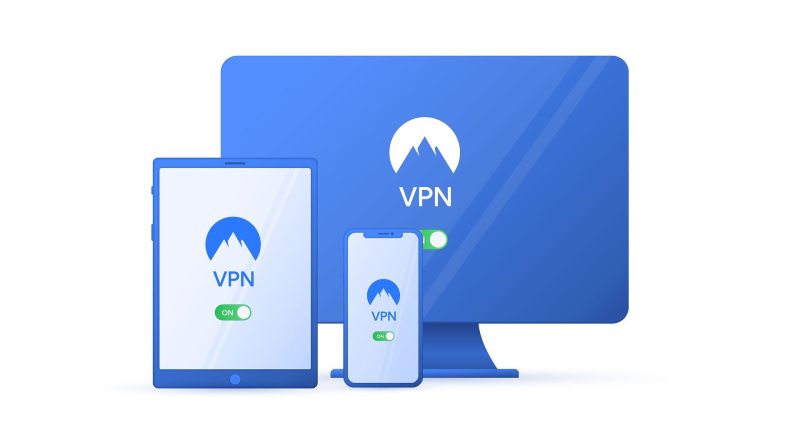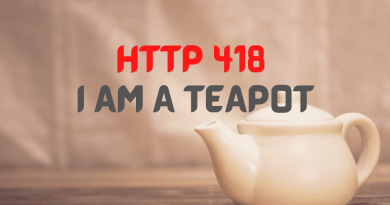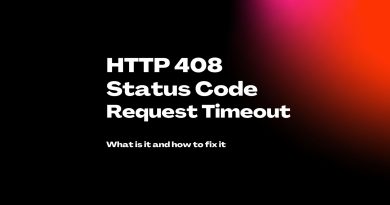What is Virtual Private Network (VPN) – A Beginner’s Guide
Nowadays with internet security becoming an increasingly important issue, more and more people are turning to Virtual Private Networks (VPNs) to protect their online activity. But what is a VPN? And what does it do? This beginner’s guide will provide you the VPN meaning and more.
What is VPN and How does it work?

A VPN is a private network that uses public infrastructure, such as the internet, to provide remote users secure access to their organization’s network. A VPN can be used to allow employees to securely connect to a corporate network from outside the office, for example. VPN encrypts data by using combination of encryption and tunnelling protocols, and create a secure connection between two points, often referred to as a “tunnel.” On a VPN connections, your internet traffic is routed through this encrypted tunnel, making it private and secure.
VPN for personal use
A VPN can also be used for personal use, to protect your online activity from prying eyes. Many people use a VPN services to access geo-restricted content or to stay private and secure on public Wi-Fi networks. A VPN service can also help protect your privacy and security by masking your true IP address and location. There are many different providers available, each with their own set of features and benefits. When choosing a VPN provider, it is important to consider things like encryption levels, speed, and privacy policy.
Types of VPNs
There are several different types of VPNs, including remote-access VPNs, site-to-site VPNs, and virtual private LAN service (VPLS).
- Remote-access VPNs : Remote-access VPN is used to allow VPN users to remotely connect to a private network for security purposes. For example, an employee who needs access to the company’s intranet while they are traveling may use a VPN to access it remotely.
- Site-to-site VPNs: A site-to-site VPN allows employees to securely connect multiple sites and share files, data, and network resources. This is commonly used by larger organizations that have a number of remote offices or workers who need secure access to the company network.
- Virtual private LAN service (VPLS): A VPLS VPN is a high-speed network that connects multiple sites using an existing infrastructure, such as the internet. It is commonly used in large organizations that need fast and reliable connectivity between many different branches or facilities.
Whether you are looking for increased security, privacy, or access to geo-restricted content, there is a VPN that can help you. With so many different types of VPNs available, it’s important to choose one that meets your needs.
What are VPN protocols and do they matter?
VPN protocols are the underlying technology that allows VPNs to encrypt and secure your data. There are several different types of protocols, each with their own advantages and disadvantages. Some of the most popular VPN protocols include PPTP, L2TP/IPSec, OpenVPN, and SSTP.
- PPTP: Point-to-Point Tunneling Protocol is one of the oldest and most common VPN protocols. It is fast and easy to set up, but it is not as secure as some of the other VPN protocols. It is used for both remote-access VPNs and site-to-site VPNs.
- L2TP/IPSec: Layer 2 Tunneling Protocol is a more secure VPN protocol than PPTP. It uses encryption to protect your data, but it can be slower than PPTP. It is commonly used for remote-access VPNs.
- OpenVPN: OpenVPN is a VPN protocol that is known for being both secure and fast. It uses SSL/TLS for encryption, which makes it more secure than PPTP and L2TP/IPSec. It is also one of the most commonly used VPN protocols.
- SSTP: Secure Socket Tunneling Protocol is a VPN protocol that is primarily used on Windows. It uses SSL/TLS for encryption, which makes it more secure than PPTP and L2TP/IPSec. However, it can be slower than OpenVPN.
When you are choosing a VPN provider, it’s important to consider the VPN protocols that they offer. Some providers only offer one VPN protocol, while others offer multiple. Choose a provider that offers the protocol that you need. Ultimately, the type of VPN protocol that is best depends on your specific needs and preferences. Some protocols are more secure or fast than others, while some may offer greater access to certain types of content or allow you to bypass certain restrictions.
How to choose a VPN?
There are many factors to consider when choosing a VPN, such as security, speed, price, and VPN server location. One of the most important factors to consider is security. You should look for a VPN that uses strong encryption and protocols, such as OpenVPN or IPsec. Other important factors to consider when choosing a VPN are speed, price, and server location. For best performance, you will want a fast and reliable VPN servers in many different countries. For the best value, look for a VPN with a low monthly price and no data limits. Finally, make sure to check out our list of the best VPNs to find the perfect one for you.
Best VPN providers
There are many vpn providers available that offer non free and free VPNs, but not all of them are created equal. When choosing a VPN provider, be sure to consider the factors mentioned above. Here are some of the best VPN providers:
- ExpressVPN: Offers a wide range of protocols and is one of the fastest vpns available.
- NordVPN: Offers strong security protocols and is one of the most affordable vpns.
- CyberGhost VPN: Provides a high level of security and is very user-friendly.
- IPVanish: One of the fastest VPNs available and offers a wide range of protocols.
No matter what your needs are, there is a VPN that can help you. Be sure to do your research and choose a provider that meets your specific needs.
Why should you use a VPN connection?
There are many benefits of using a VPN, such as increased security and privacy, unblocking of geo-restricted content, and bypassing of internet censorship. With the rise in cybercrime and online surveillance, many people are looking for ways to stay safe and secure online. A VPN can help them do that by encrypting their data and hiding their activity from prying eyes such as any internet service provider that collect data about your online activity.
Additionally, some countries have restrictions on certain websites or services due to geo-blocking. A VPN can be used to bypass these restrictions and access blocked content. Finally, VPNs can be used to bypass internet censorship. In countries where the government censors certain websites or services, a VPN can provide access to them.
How to setup a VPN?
The process of setting up a VPN varies depending on your VPN provider, but the general steps are as follows:
1. Choose a VPN provider and sign up for an account.
2. Download and install the VPN client software onto your device.
3. Connect to a server in the country you want to connect to.
4. Enjoy your VPN connection!
Is VPN safe?
Yes, VPNs are safe to use. However, it’s important to choose a reputable and trustworthy provider. There are many scams and fake VPNs on the internet, so be sure to do your research before signing up for one. Also, remember that even though a VPN can keep your data private and secure, it doesn’t offer 100% protection. Always be cautious when using the internet and avoid sharing sensitive information like passwords or credit card details. And, of course, always use common sense to stay safe online!
Is using VPN legal?
Yes, using a VPN is completely legal. However, there may be some restrictions or limitations depending on where you live and what you are using the VPN for. For example, some countries may require that VPNs only be used for specific purposes, such as business or personal use. Always check your local laws and regulations before using a VPN, to make sure you are not breaking any rules.
Does a VPN slow down your internet connection?
A VPN can sometimes slow down your internet connection, depending on the server location, encryption, and protocols used. If you find that your VPN is slowing down your connection, you can try changing to a different server location or protocol. You may also want to try a different VPN provider if you’re not happy with the performance of your current one. There are many different VPNs available, so it’s important to choose one that meets your needs and offers the best speed and performance. With a little research and trial-and-error, you should be able to find a VPN that works for you!
Conclusion
A VPN is a great way to stay safe and secure online. It can also be used to bypass geo-restrictions and internet censorship. However, it’s important to choose a reputable and trustworthy VPN provider. Always check your local laws and regulations before using a VPN, to make sure you are not breaking any rules. And, if you find that your VPN is slowing down your connection, you can try changing to a different server location or protocol. With a little research and trial-and-error, you should be able to find a VPN that works for you!



